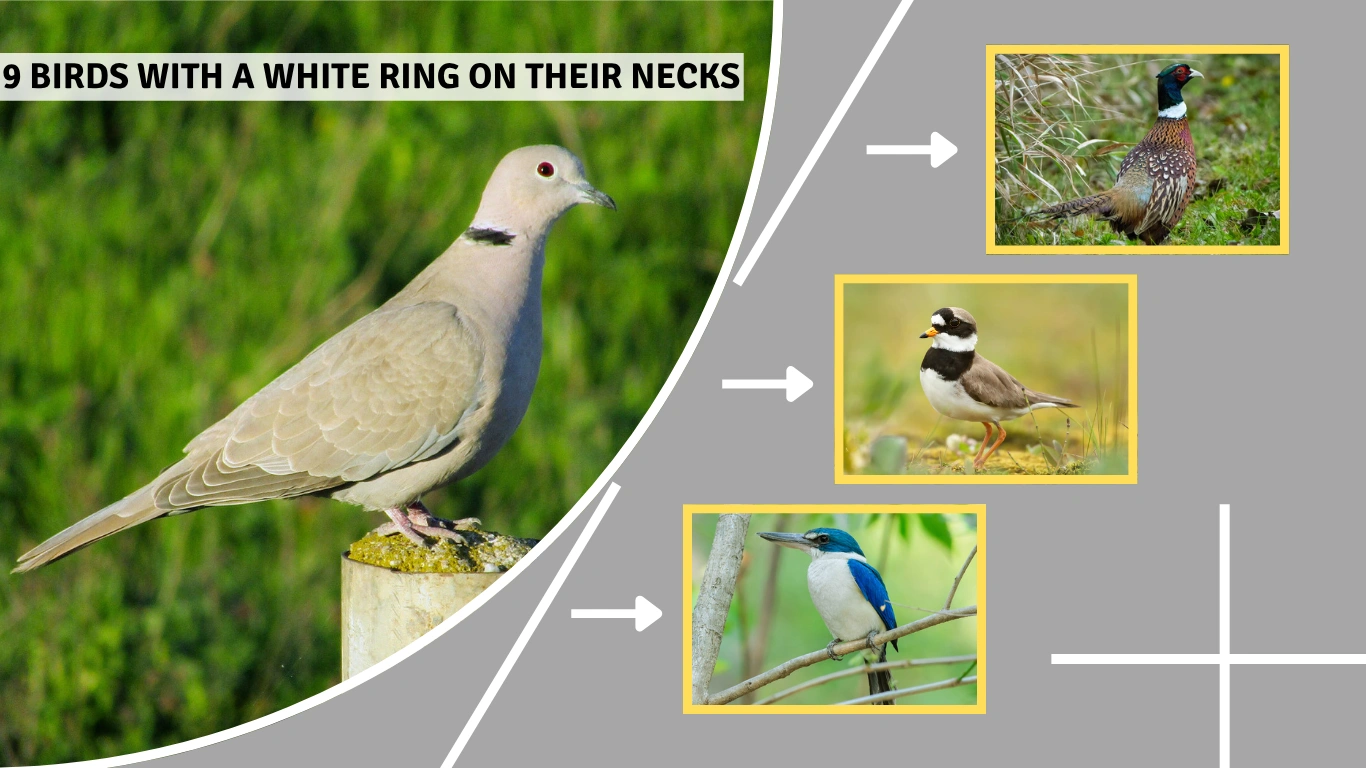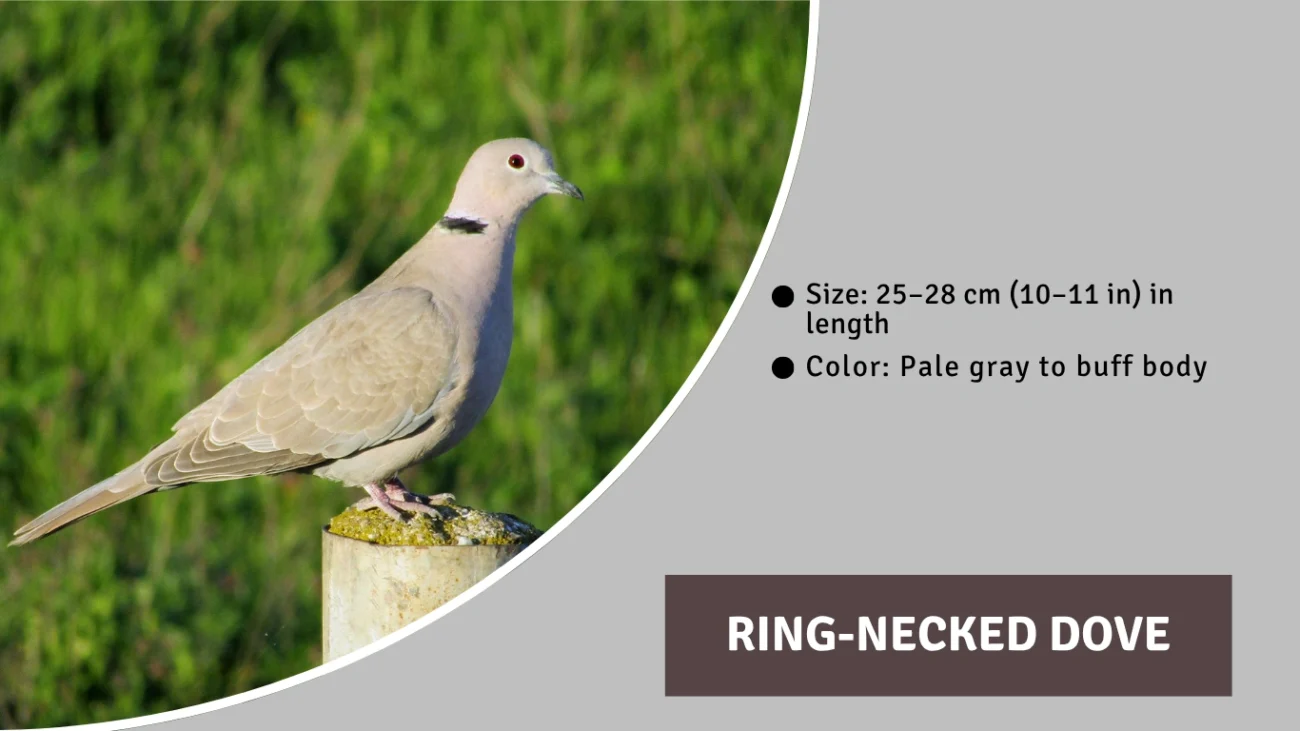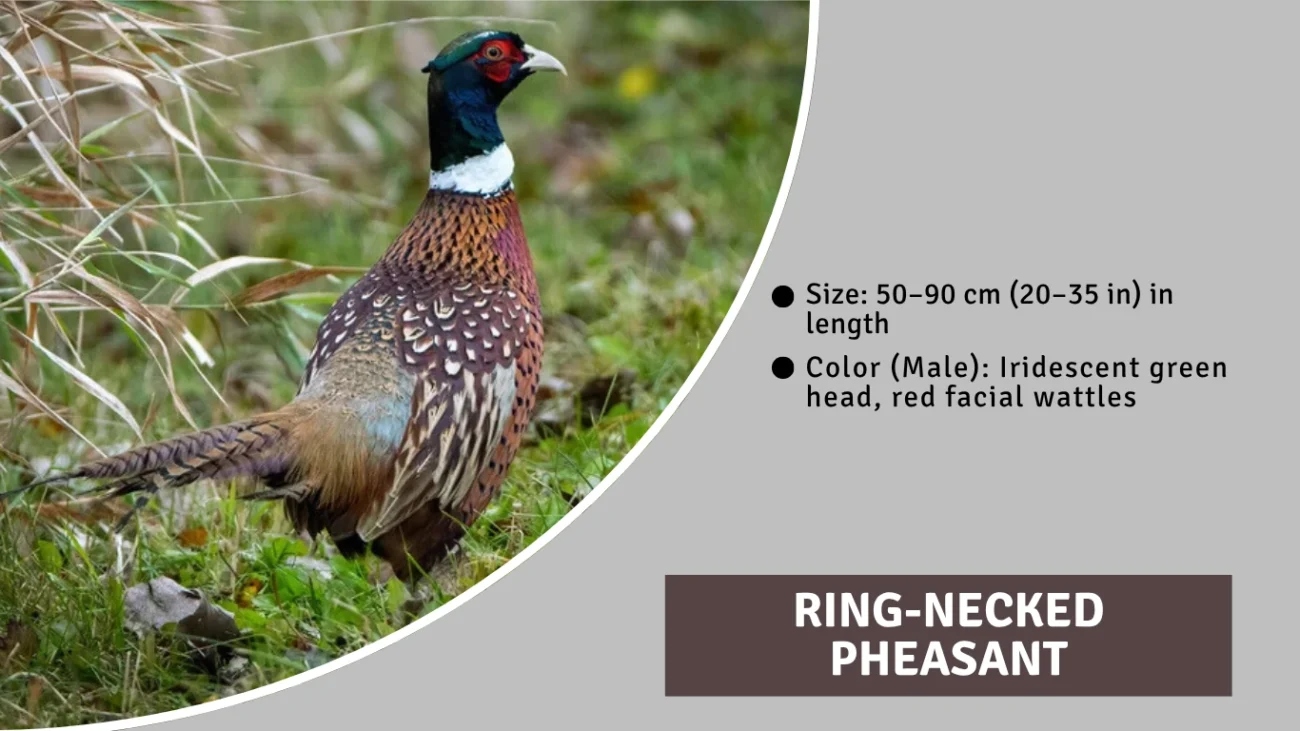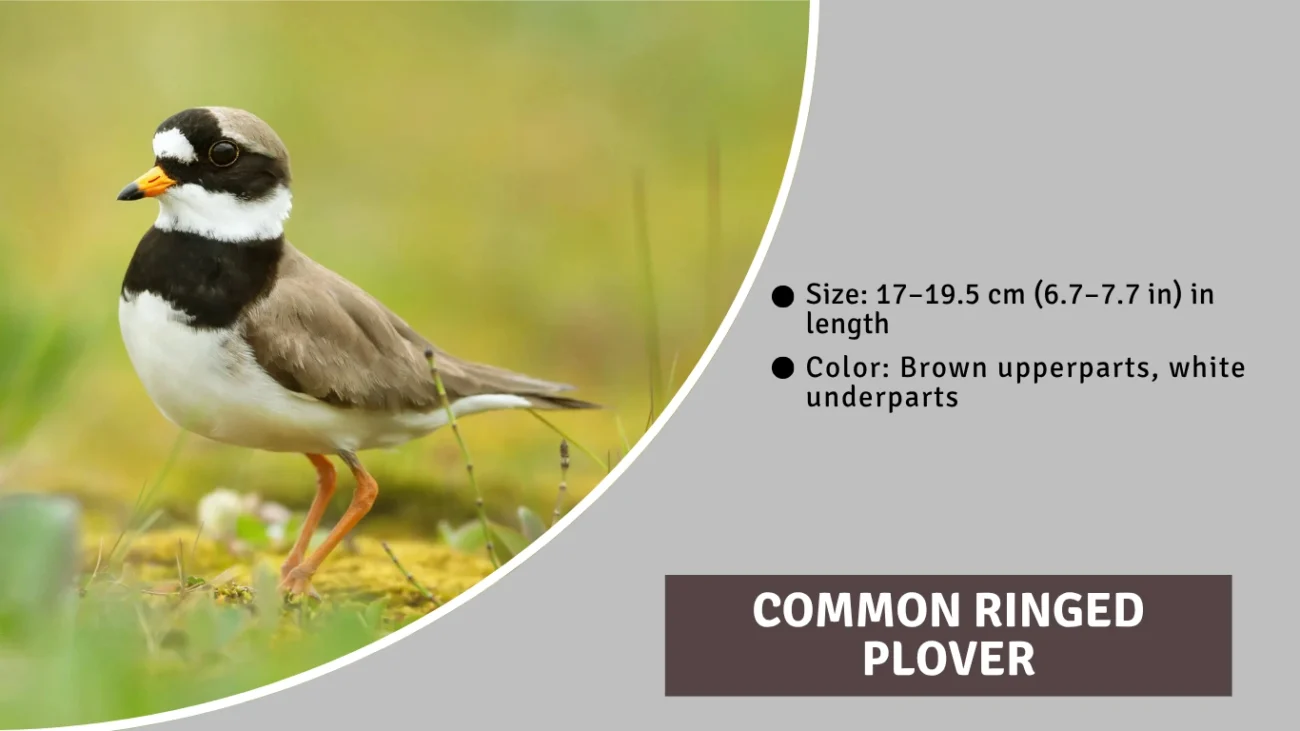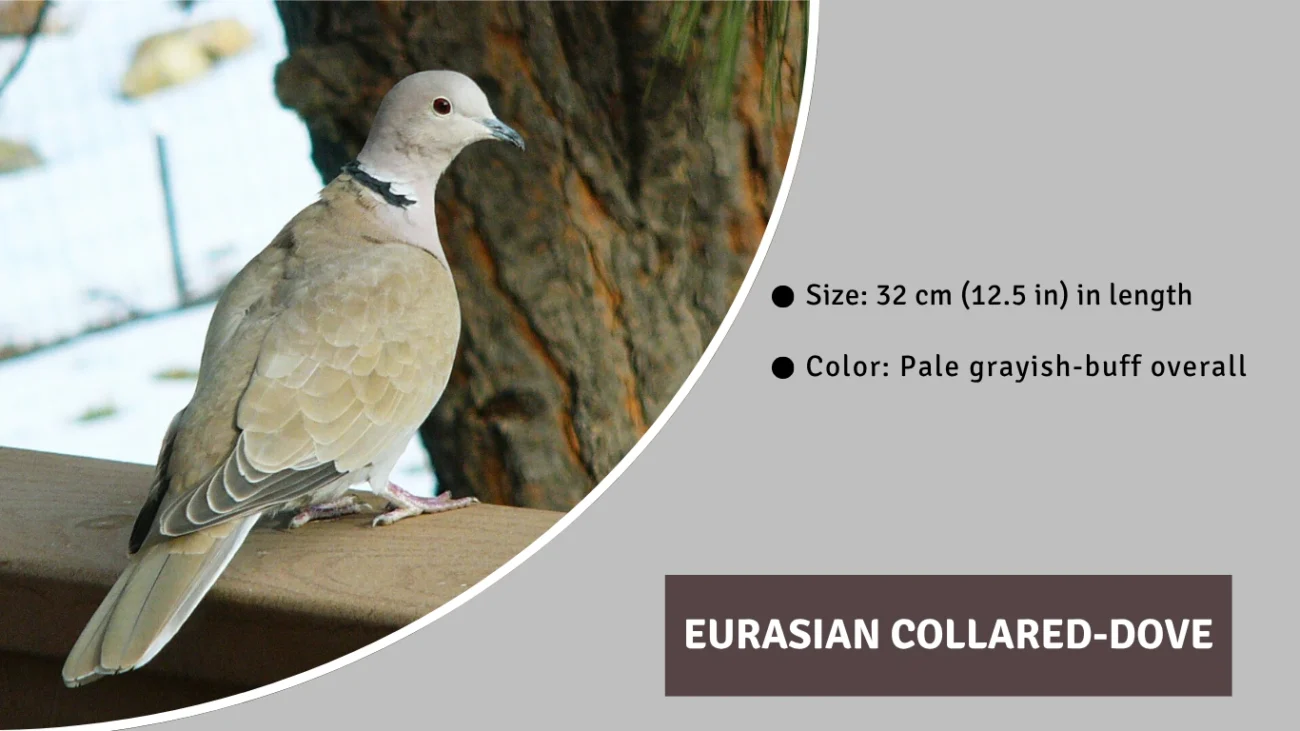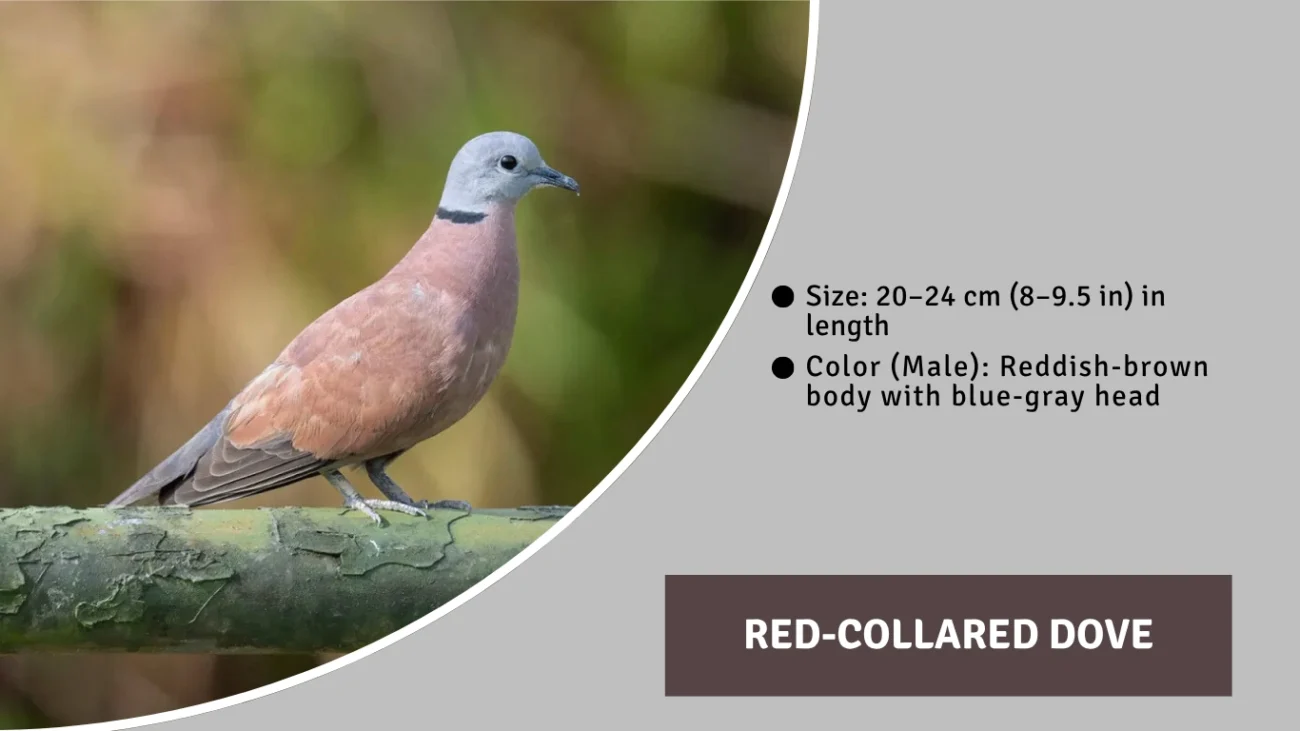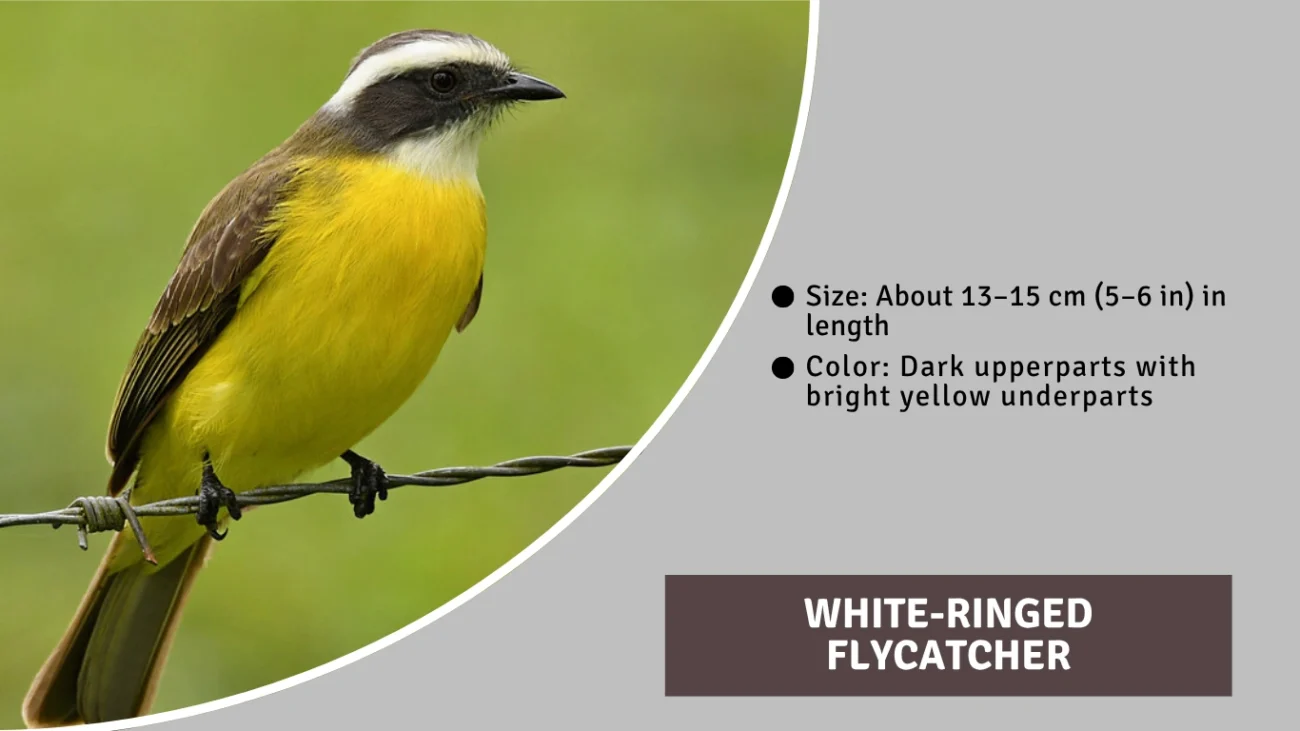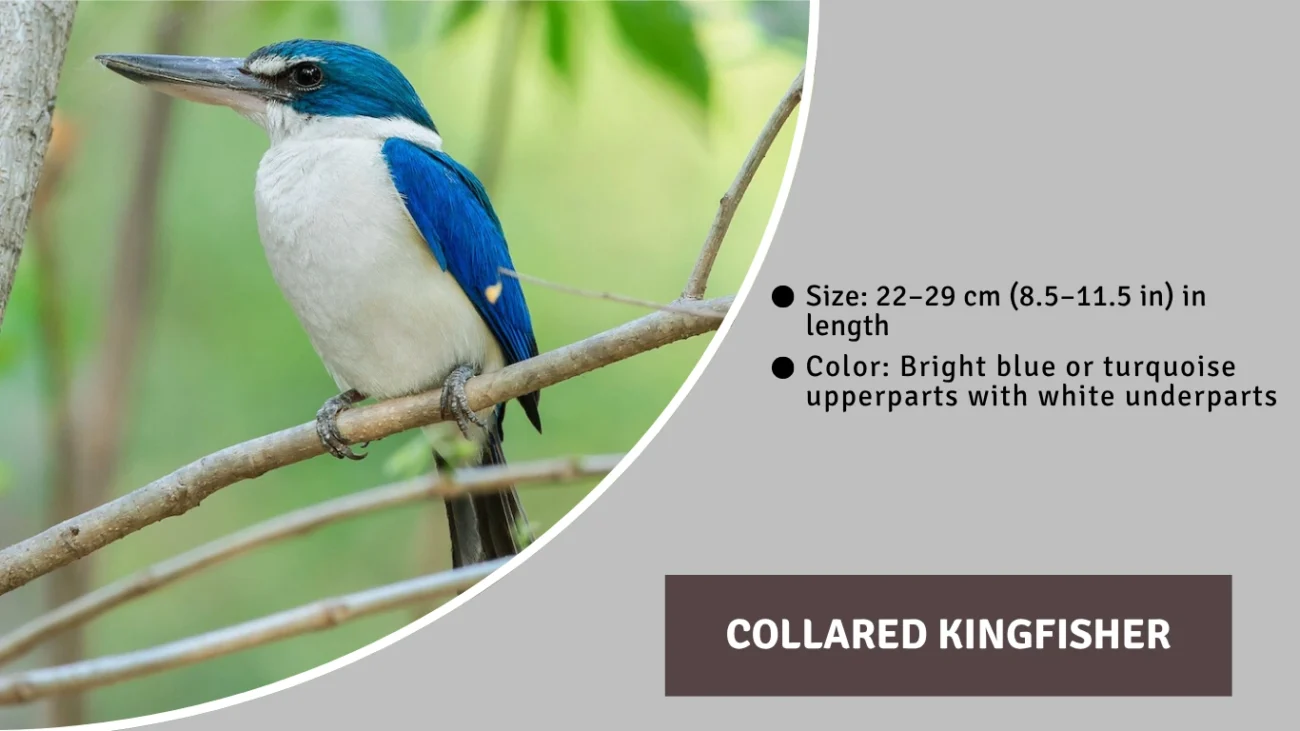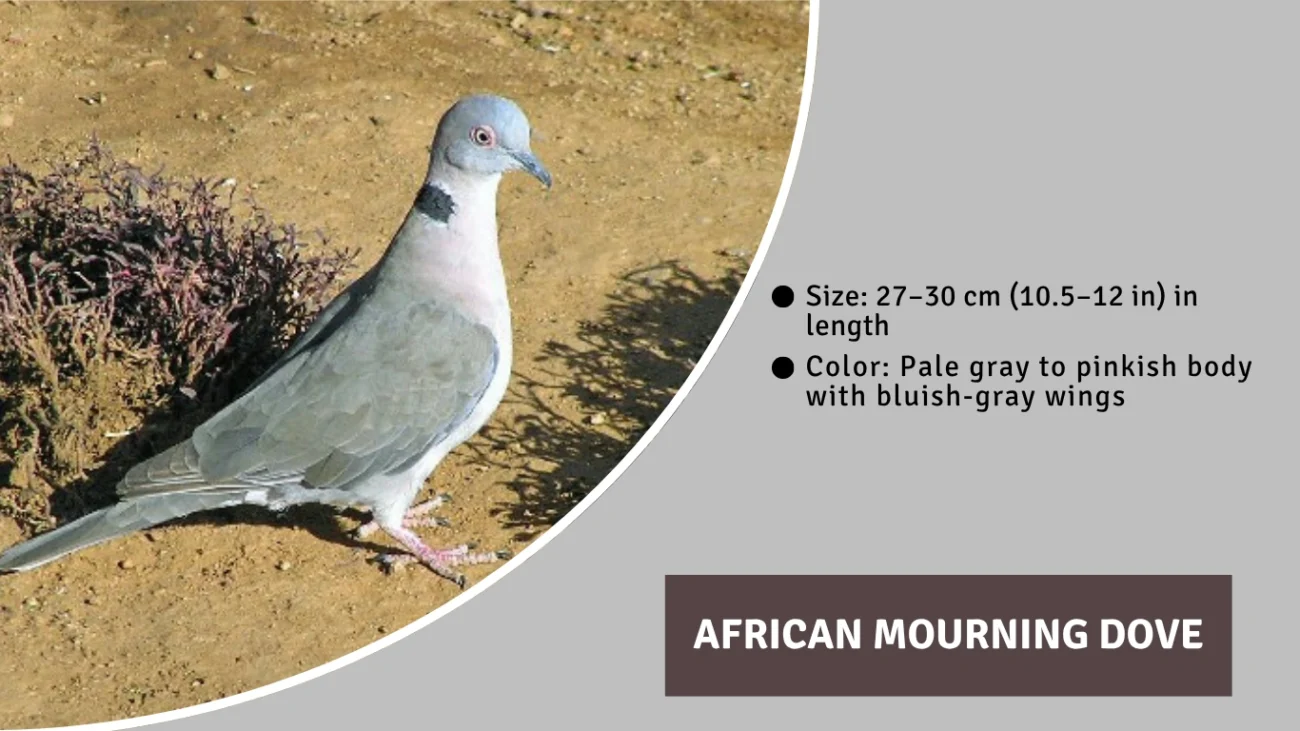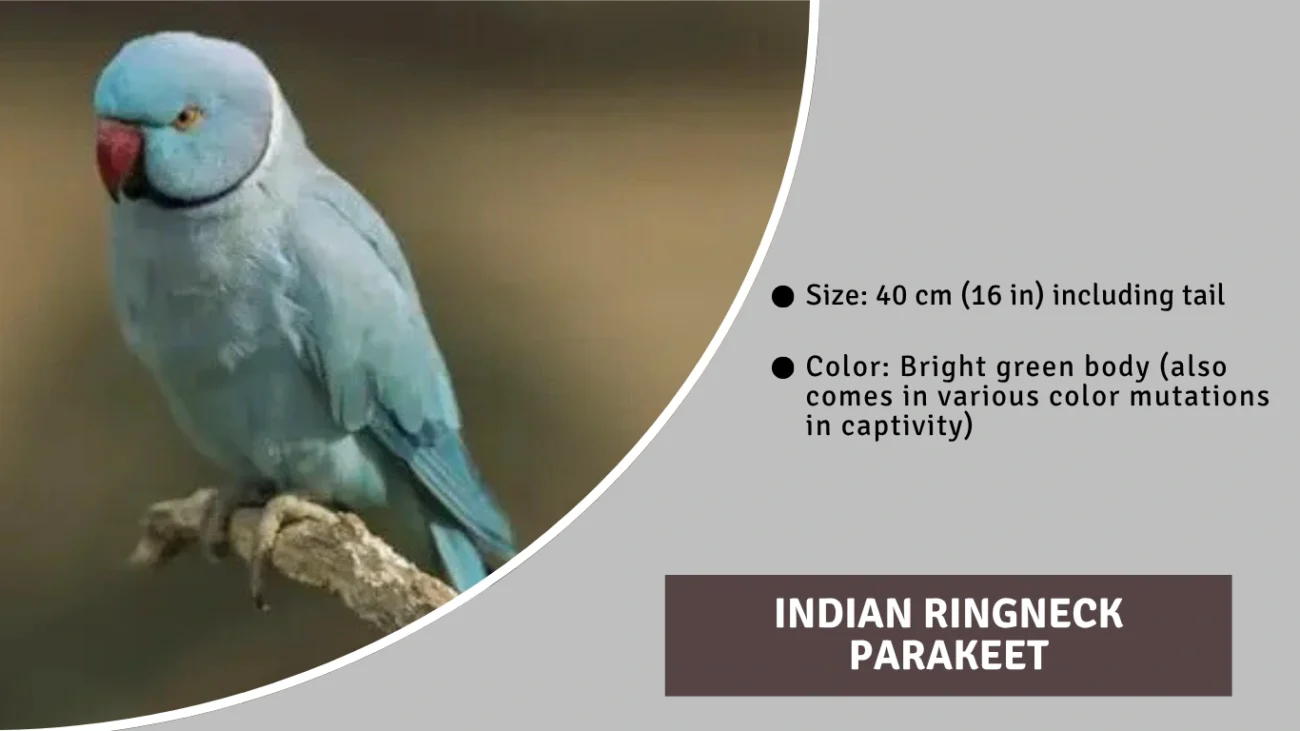Birds with white rings around their necks are fascinating creatures easily identified by this striking feature. This unique marking helps distinguish various species across different families and habitats. From woodland doves and colorful pheasants to agile flycatchers and vibrant parrots, these birds captivate birdwatchers worldwide. Their distinctive collars often play a role in mating displays, camouflage, or species recognition. Exploring these birds reveals a rich diversity of shapes, colors, and behaviors tied together by this elegant neck ring.
1. Ring-necked Dove
The Ring-necked Dove is a small, elegant bird known for its soft, cooing call and distinctive white neck ring. Common across sub-Saharan Africa, this dove is often found in open woodlands, farmlands, and even urban areas.
Identification
- Size: 25–28 cm (10–11 in) in length
- Color: Pale gray to buff body
- Neck: Distinctive white or pale collar around the back of the neck
- Eyes: Dark with a narrow eye ring
- Tail: Long and rounded with white edges
Habitat
Ring-necked Doves prefer open areas such as savannas, grasslands, and cultivated fields. They are also frequently seen in parks and gardens.
Behavior
These doves are often seen in pairs or small flocks, feeding on seeds and grains. Their soft, rhythmic cooing is a familiar sound in their range.
Range
They are native to sub-Saharan Africa but have been introduced to other parts of the world due to the pet trade and accidental escapes.
2. Ring-necked Pheasant
The Ring-necked Pheasant is a colorful and large game bird known for the white ring around its neck and its striking plumage. Commonly found in farmlands and grasslands, it is a popular species for game hunting.
Identification
- Size: 50–90 cm (20–35 in) in length
- Color (Male): Iridescent green head, red facial wattles
- Neck: Prominent white ring around the neck (mostly in males)
- Tail: Long, pointed tail with dark barring
- Color (Female): Brown and speckled for camouflage
Habitat
This species favors open fields, agricultural areas, and grasslands with nearby cover such as hedgerows or woodlots.
Behavior
Ring-necked Pheasants are ground-dwelling birds that prefer to run rather than fly. Males are territorial and perform elaborate displays to attract mates.
Range
Native to Asia, they have been widely introduced to North America and Europe for sport hunting and are now common in many rural landscapes.
3. Common Ringed Plover
The Common Ringed Plover is a small, compact shorebird identified by its black-and-white ringed neck pattern. It is often seen on sandy or pebbly shores across Europe and Asia.
Identification
- Size: 17–19.5 cm (6.7–7.7 in) in length
- Color: Brown upperparts, white underparts
- Neck: Black neck ring bordered by white
- Bill: Short with orange and black tip
- Legs: Orange
Habitat
Prefers coastal beaches, mudflats, and riverbanks, especially during migration and breeding seasons.
Behavior
These plovers are quick runners and foragers, often seen darting around in search of insects and small invertebrates. They nest on the ground in shallow scrapes.
Range
Breeds in northern Europe and Asia and migrates to Africa and southern Asia for the winter.
4. Eurasian Collared-Dove
The Eurasian Collared-Dove is a graceful, medium-sized dove recognized by its pale plumage and distinct narrow black-and-white collar on the neck. It has expanded rapidly across Europe and North America in recent decades.
Identification
- Size: 32 cm (12.5 in) in length
- Color: Pale grayish-buff overall
- Neck: Thin black collar edged with white on the back of the neck
- Eyes: Dark red with a pale eye ring
- Tail: Broad and squared with white tips
Habitat
Frequently found in urban areas, farmland, and open woodland, especially near human habitation.
Behavior
Known for its three-part cooing call, the Eurasian Collared-Dove is social and often seen in pairs or flocks. It forages mostly on the ground for seeds and grains.
Range
Originally native to Asia and Europe, it has rapidly spread across North America and parts of the Caribbean since the mid-20th century.
5. Red-collared Dove
The Red-collared Dove is a small, striking dove known for its reddish plumage and the distinctive dark collar that contrasts with its pale neck. It is commonly found in open country and near human settlements in Asia.
Identification
- Size: 20–24 cm (8–9.5 in) in length
- Color (Male): Reddish-brown body with blue-gray head
- Neck: Prominent dark collar across the back of the neck
- Color (Female): More brownish and duller overall
- Eyes: Dark with a narrow pale eye ring
Habitat
Prefers open farmlands, plains, and lightly wooded areas. It often inhabits villages and towns.
Behavior
Red-collared Doves are usually seen in pairs or small groups. They feed mostly on seeds and grains and are often seen perching on wires or rooftops.
Range
Found throughout South and Southeast Asia, including the Indian subcontinent, southern China, and the Philippines.
6. White-ringed Flycatcher
The White-ringed Flycatcher is a tropical bird with bold markings, including a noticeable white neck ring. It is known for its lively behavior and preference for forested habitats in Central and South America.
Identification
- Size: About 13–15 cm (5–6 in) in length
- Color: Dark upperparts with bright yellow underparts
- Neck: Distinct white ring or partial collar around the neck
- Bill: Short, broad, and slightly hooked
- Head: Often features a white stripe above the eye
Habitat
Inhabits tropical and subtropical moist lowland forests, forest edges, and secondary growth.
Behavior
Active and agile, these flycatchers often sally out from perches to catch insects mid-air. Their sharp calls and quick movements make them noticeable despite their small size.
Range
Found in countries such as Colombia, Ecuador, Panama, and Costa Rica, mainly in lowland tropical regions.
7. Collared Kingfisher
The Collared Kingfisher is a medium-sized, strikingly colored bird named for the prominent white collar around its neck. It thrives in coastal and mangrove environments throughout Asia and the Pacific.
Identification
- Size: 22–29 cm (8.5–11.5 in) in length
- Color: Bright blue or turquoise upperparts with white underparts
- Neck: Prominent white collar extending around the neck and sides of the head
- Bill: Large, strong, and black
- Eyes: Dark and prominent
Habitat
Commonly found in mangroves, coastal forests, tidal rivers, and even gardens near shorelines.
Behavior
Often seen perched silently before diving to catch crabs, insects, and small reptiles. Its loud, harsh calls are distinctive and frequently heard in its territory.
Range
Widespread from the Indian subcontinent through Southeast Asia to northern Australia and many Pacific islands.
8. African Mourning Dove
The African Mourning Dove is a slender, elegant dove easily recognized by the white or pale collar on the back of its neck. It is a common bird across sub-Saharan Africa, found in a wide range of habitats.
Identification
- Size: 27–30 cm (10.5–12 in) in length
- Color: Pale gray to pinkish body with bluish-gray wings
- Neck: Narrow white collar on the hindneck
- Eyes: Dark with a red eye ring
- Tail: Long and broad with white tips
Habitat
Inhabits savannas, open woodlands, gardens, and farmlands. Often seen near water sources.
Behavior
Feeds mainly on the ground, foraging for seeds and grains. Known for its mournful, low-pitched cooing call.
Range
Widely distributed across sub-Saharan Africa, from Senegal to Ethiopia and down to South Africa.
9. Indian Ringneck Parakeet
The Indian Ringneck Parakeet is a vibrant, medium-sized parrot known for its intelligence, vivid green color, and the distinct neck ring seen in males. It is a popular pet bird and also found widely in the wild.
Identification
- Size: 40 cm (16 in) including tail
- Color: Bright green body (also comes in various color mutations in captivity)
- Neck (Male): Prominent black and rose-colored ring around the neck
- Neck (Female/Young): Lacks or has a faint ring
- Beak: Red and strongly curved
Habitat
Lives in forests, agricultural lands, and urban areas. Commonly seen in parks and gardens.
Behavior
Highly vocal and social, Indian Ringnecks are known for their mimicry skills and lively personality. In the wild, they form large flocks and feed on fruits, seeds, and grains.
Range
Native to the Indian subcontinent, but has established feral populations in the Middle East, Europe, and other parts of the world due to escape or release from captivity.
Summary
These nine birds each feature a distinctive white or pale ring around their necks, serving as a key identification mark. From the elegant Ring-necked Dove and the colorful Ring-necked Pheasant to the shore-loving Common Ringed Plover, these birds inhabit diverse environments worldwide. They range from doves and doves-like species to flycatchers, kingfishers, and parrots. Their unique collars add to their beauty and help birdwatchers easily distinguish them in various habitats across Africa, Asia, Europe, and the Americas.

